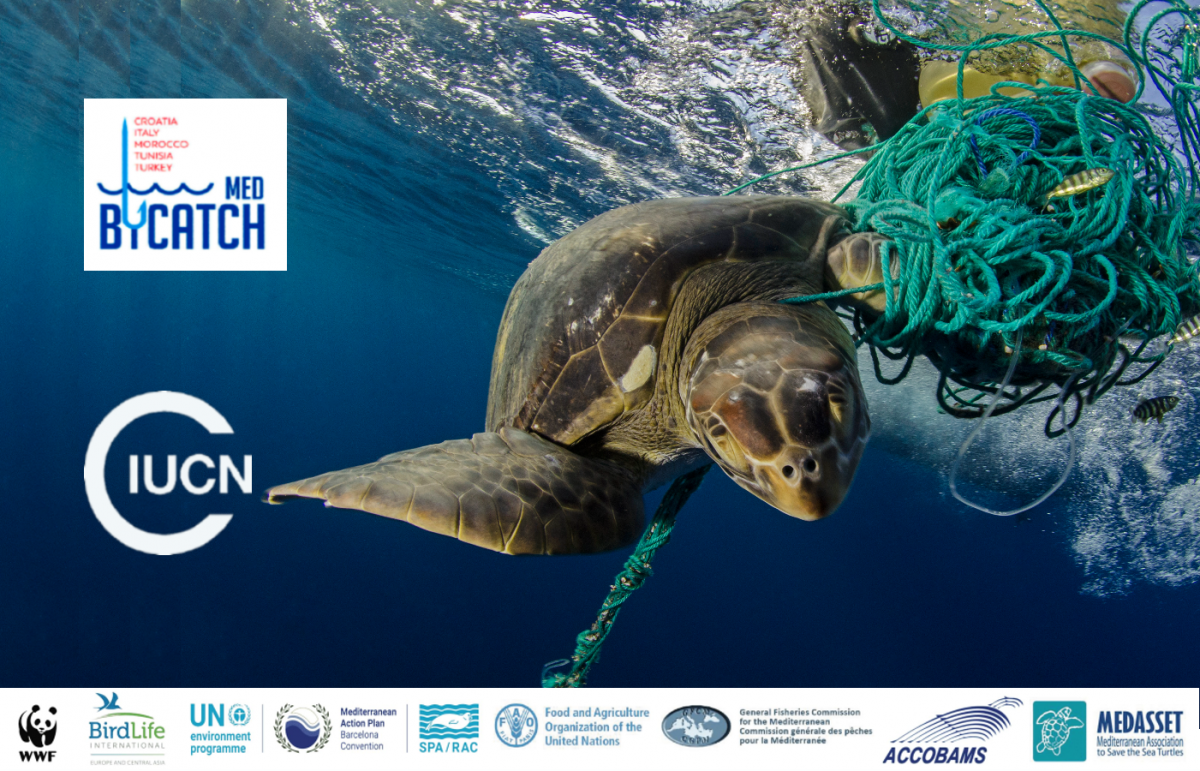Dialogue between fishers and civil society on sustainable fishing practices in the framework of the Alboran Sea meeting
The sub-regional meeting dedicated to the Alboran Sea, organised in Malaga by IUCN-Med, connected conservation organizations from both sides of the Mediterranean, with the aim of exchanging the latest data and findings on the conservation of marine biodiversity in the region and its relationship with the fishing sector and management of marine protected areas. Several of these organisations are promoting cooperation on a regional scale through the Together for the Med initiative.

Photo: Santiago Suarez, IUCN
The importance of the Alboran Sea for North Africa and Spain
As a transition zone between the Atlantic and the Mediterranean, the Alboran Sea is an obligatory passageway for numerous migratory species, as well as a key route for maritime transport. The physical and climatic characteristics that converge in the Alboran Sea have created a rich variety of ecosystems and generated an abundance of natural resources, which support several key economic sectors and are vital for the well-being of societies. In this sense, this meeting organised by IUCN-Med represents a further step in the joint work that conservation organizations present in this sea have been carrying out for years.
During the meeting, experts from Morocco, Tunisia, Algeria and Spain presented the results of different projects to monitor and conserve the biodiversity of this sea, such as MedBycatch, MedKeyHabitats, LIFE Intemares, COGITO, MedPath and other initiatives like GFCMLex – a platform to enable access to relevant fisheries legislation in Mediterranean countries. Moreover, the participating organisations explored further synergies, both for the exchange of information, as well as for the joint development of projects and fundraising that allow to sustain and replicate these works
Among others, the Regional Activity Center for Specially Protected Areas (UNEP/MAP SPA/RAC), the General Fisheries Commission for the Mediterranean of FAO, GREPOM Morocco, WWF North Africa, WWF Spain, ACCOBAMS, Blueseeds, Centre National De Recherche et of Développement De La Pêche Et De L'aquaculture in Algeria, Marine Stewardship Council (MSC), the Spanish Herpetological Association attended the meeting either in person or virtually.
Excursion to the port of Caleta de Vélez (Málaga)
The event also included a visit to the port of Caleta de Vélez in the province of Málaga - one of the ports with the highest number of catches in the Mediterranean), to learn about the sustainable fishing practices developed in the area.
Travelling the sea on the first boat provided with a licence for pescatourism activities in Spain, local entrepreneur Sebastián Guerrero offered a tasting with original ways of harnessing local sea products.
The aim of the pescatourism itineraries is to diversify the economic activity of the area, while reducing the pressure on fishing resources and generating additional income to ensure the sustainability of the sector during the low season. In Spain, pescatourism is an activity still under development, given the recent approval of its legal framework.
The experience of Mari Carmen, a pioneer woman in the national fisheries sector
Moreover, during the visit the attendees got the chance to speak to Mari Carmen Navas, Main Skipper of the port of Caleta de Vélez, who also holds the positions of Deputy President in the National Federation of Fishing Associations and president of the Federation in the Malaga province.
Besides visiting the local fish market and the facilities of the fishermen's association to learn more about its management, this second meeting encouraged a dialogue on the use of different types of fishing gear, as well as on the generational change in fisheries.
For more information, please contact María del Mar Otero







